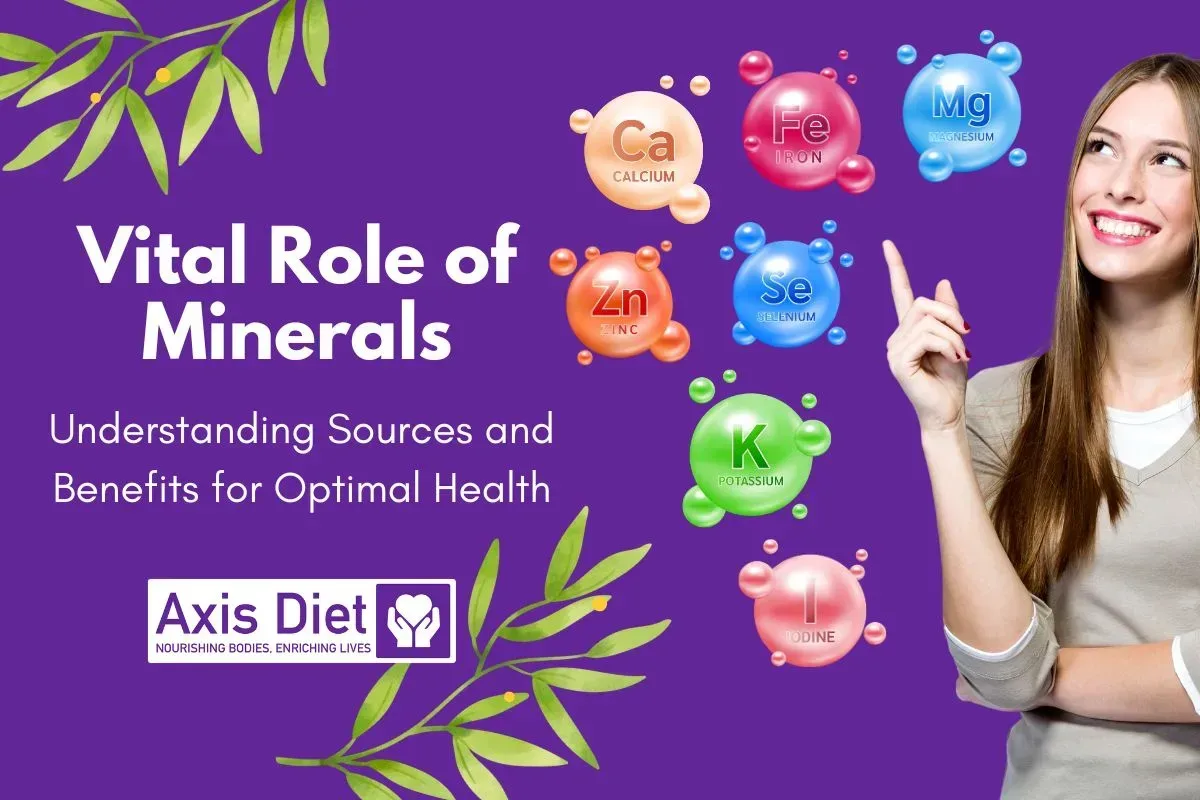Minerals are vital to life, holding an indispensable place in the physiological processes of every organism on Earth, including humans. As essential elements, they form the backbone of our health, allowing us to thrive and maintain our bodily functions.
What are Minerals?
Minerals are natural substances formed by geological processes. As dietary elements, they can be divided into two broad categories: macro-minerals and trace minerals. Macro-minerals, such as calcium, potassium, and magnesium, are required in larger amounts by the body. Trace minerals, like iron, zinc, and selenium, are needed in smaller amounts, but are nonetheless critical to overall health. Both types of minerals are obtained through a varied and balanced diet that includes a wide range of foods.
Vital Role of Minerals in Human Health
1. Bone and Teeth Health
Calcium, magnesium, and phosphorus are the chief architects of our skeletal structure. They participate actively in building and maintaining strong bones and teeth. A sufficient intake of these minerals is vital to prevent bone-related diseases like osteoporosis and tooth decay. Dairy products, leafy green vegetables, and fortified cereals are excellent sources of these essential minerals.
2. Essential for Biochemical Reactions
Minerals are the unsung heroes behind the scenes of countless biochemical reactions in our body. Magnesium alone is involved in over 300 enzymatic reactions, including those responsible for the regulation of muscle and nerve function, blood glucose control, and blood pressure regulation. Similarly, zinc assists in metabolic processes, DNA synthesis, wound healing, and supports our sense of taste and smell.
3. Vital for Oxygen Transportation
Iron plays a key role in the transportation of oxygen from our lungs to the rest of the body. It is an essential component of hemoglobin, the protein in red blood cells that carries oxygen around the body. An insufficient intake of iron can lead to iron deficiency anemia, a condition characterized by fatigue, weakness, and a weakened immune system.
4. Maintenance of Fluid Balance and Nerve Function
Minerals such as sodium, potassium, and chloride are vital electrolytes. They help regulate fluid balance, nerve impulses, and muscle contractions in the body. These minerals maintain the electrically charged particles necessary for our nerve cells’ ability to transmit signals. Maintaining a balanced intake of these minerals can help prevent issues like dehydration, muscle cramps, and potentially serious heart complications.
5. Boosts Immune Health
Certain minerals play an indispensable role in the immune response. Zinc, selenium, and iron, to name a few, are vital for maintaining a robust immune system. They assist in the growth and function of immune cells and the production of antibodies, protecting us against pathogens and diseases. Regular intake of these minerals is crucial, particularly in these times when having a healthy immune system is more important than ever.
The Consequence of Mineral Deficiency
A balanced intake of minerals is key to maintaining overall health. Deficiencies can lead to a host of health problems. For instance, iron deficiency can result in anemia, which can cause fatigue, weakness, and impaired immune function. Similarly, calcium deficiency can contribute to poor bone health and, in severe cases, rickets in children and osteoporosis in adults. Iodine deficiency can affect thyroid function, leading to symptoms such as fatigue, weight gain, and depression.
Sourcing Minerals from Diet
Fortunately, a varied diet can supply most of the minerals we need. Some good sources of minerals include:
- Dairy products, leafy green vegetables, and fortified foods for calcium
- Meat, whole grains, and legumes for iron
- Nuts, seeds, and whole grains for magnesium
- Bananas, oranges, and potatoes for potassium
However, some people may struggle to get enough minerals through diet alone, such as those with certain medical conditions, vegetarians and vegans, or pregnant women. In such cases, supplements might be beneficial, but it’s always advisable to consult with a healthcare professional before starting any new supplement regimen.
Conclusion
Minerals, though small in quantity, play a massive role in the functioning of our body. They form the cornerstone of our health and wellbeing. A balanced, varied diet can help ensure that we get the necessary mineral intake, but it’s always important to be aware of our individual health circumstances and adjust accordingly. In essence, a healthy mineral balance is key to a healthy life.






[…] journeyed through the world of vitamins, it’s clear that these tiny nutrients play monumental roles in our overall health and wellbeing. From maintaining healthy vision to boosting our immunity, supporting mental health, […]
[…] Notably, many spices common in our kitchens, including turmeric, ginger, garlic, cumin, and cloves, are abundant in antioxidants, providing both flavor and health benefits. […]
[…] dining out, consider dishes that hero local ingredients, and relish the natural flavors and health benefits they […]
[…] Complex carbohydrates provide sustained energy, aid in digestion and fat loss. It’s also vital to include micronutrients such as vitamins and minerals in your diet. For example, essential vitamins like Vitamin D contribute to bone health, B-vitamins […]
[…] essential vitamins and minerals, forming the foundation of a balanced diet. They support immune health with antioxidants and provide essential minerals for bone health, all without excessive […]
I think this is among the most important info for me.
And i am glad reading your article. But want to remark on some general things,
The web site style is wonderful, the articles is really nice : D.
Good job, cheers
Nice blog here! Also your web site loads up very fast!
What host are you using? Can I get your affiliate link
to your host? I wish my web site loaded up as
fast as yours lol
[…] […]
[…] or genetics, excessive hair loss can also be a sign of low Vitamin D levels. Vitamin D plays a role in the cycle of hair growth and health. Deficiency can lead to hair thinning or increased hair fall, affecting the overall health and […]
[…] have prebiotic effects. It’s also gluten-free, making it a good alternative for wheat and a source of protein and essential minerals. It provides about 6.3 grams of fiber per 100 grams. It’s a good source of protein, iron, and […]
Thanks for sharing your thoughts on importance of minerals.
Regards
[…] Wine in Moderation: Red wine, especially, is known for its polyphenols, antioxidants that benefit heart health. Consumption is limited to small amounts and typically enjoyed with […]
[…] macronutrients are required in larger amounts, micronutrients—vitamins and minerals—are equally vital for your health, though they are needed in much smaller quantities. Despite their “micro” designation, these […]